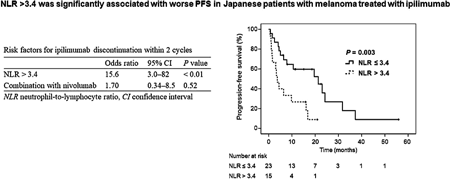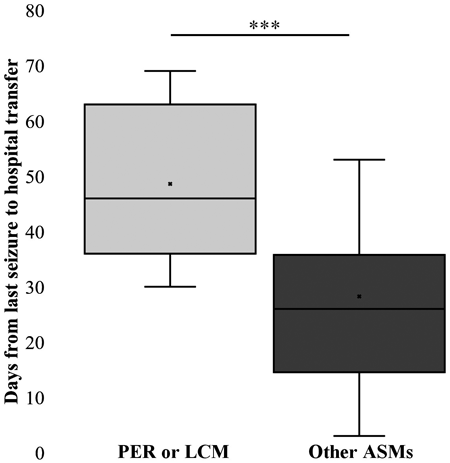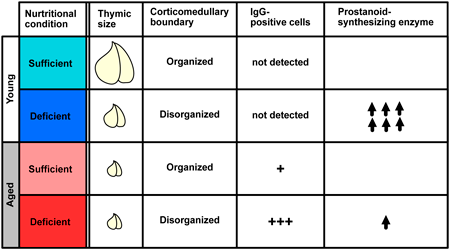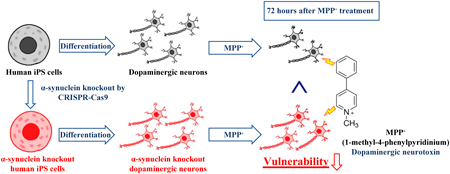- |<
- <
- 1
- >
- >|
-
2023Volume 46Issue 3 Pages 364-378
Published: March 01, 2023
Released on J-STAGE: March 01, 2023
Download PDF (11933K) Full view HTML
-
Structural Variants of Midnolin, a Genetic Risk Factor for Parkinson’s Disease, in a Yamagata Cohort2023Volume 46Issue 3 Pages 379-381
Published: March 01, 2023
Released on J-STAGE: March 01, 2023
Download PDF (402K) Full view HTML
-
2023Volume 46Issue 3 Pages 382-393
Published: March 01, 2023
Released on J-STAGE: March 01, 2023
Advance online publication: November 17, 2022Download PDF (19528K) Full view HTML -
2023Volume 46Issue 3 Pages 394-398
Published: March 01, 2023
Released on J-STAGE: March 01, 2023
Advance online publication: December 21, 2022Download PDF (3364K) Full view HTML -
2023Volume 46Issue 3 Pages 399-403
Published: March 01, 2023
Released on J-STAGE: March 01, 2023
Download PDF (598K) Full view HTML -
2023Volume 46Issue 3 Pages 404-411
Published: March 01, 2023
Released on J-STAGE: March 01, 2023
Download PDF (2178K) Full view HTML -
2023Volume 46Issue 3 Pages 412-418
Published: March 01, 2023
Released on J-STAGE: March 01, 2023
Download PDF (971K) Full view HTML -
2023Volume 46Issue 3 Pages 419-426
Published: March 01, 2023
Released on J-STAGE: March 01, 2023
Download PDF (7706K) Full view HTML -
 2023Volume 46Issue 3 Pages 427-431
2023Volume 46Issue 3 Pages 427-431
Published: March 01, 2023
Released on J-STAGE: March 01, 2023
Editor's pickStudies have reported an association between elevated neutrophil-to-lymphocyte ratio (NLR) and poor prognosis in patients with melanoma treated with ipilimumab. However, it remains unclear whether NLR is useful in Japanese. Authors retrospectively examined 38 patients, and found that baseline NLR>3.4 was an independent risk factor for ipilimumab discontinuation that was significantly associated with shorter progression-free survival. Because the NLR cut-off value in this study was lower than values in American and European studies, it possibly differs by race. Hence, it should be extrapolated to Japanese patients with caution.
Download PDF (453K) Full view HTML -
2023Volume 46Issue 3 Pages 432-439
Published: March 01, 2023
Released on J-STAGE: March 01, 2023
Download PDF (1034K) Full view HTML -
 2023Volume 46Issue 3 Pages 440-445
2023Volume 46Issue 3 Pages 440-445
Published: March 01, 2023
Released on J-STAGE: March 01, 2023
Editor's pickThis investigation of the impact of antiseizure medications (ASMs) on hospital transfer was undertaken because chronic-care hospitals have refused to accept several post-stroke epilepsy patients using novel ASMs from acute-care hospitals. Patients with stroke receiving novel ASMs, i.e., perampanel and lacosamide, had longer times to hospital transfer than patients receiving other ASMs. Furthermore, a weak correlation was found between the cost of a patient's daily medications and the number of days to hospital transfer. These results indicate that considering the availability and cost of ASMs in the transfer destination hospital is important when choosing medications for patients requiring hospital transfer.
Download PDF (559K) Full view HTML -
 2023Volume 46Issue 3 Pages 446-454
2023Volume 46Issue 3 Pages 446-454
Published: March 01, 2023
Released on J-STAGE: March 01, 2023
Editor's pickThe authors found that amentoflavone, apigenin, kaempferol, and chrysin enhanced the activity and expression of neprilysin, one of the major Aβ-degrading enzymes, by screening a polyphenol library, and that chemical structures involving a double bond between positions 2 and 3 in the C ring of flavones were important for neprilysin enhancement. Moreover, natural compounds, such as quercetin, were not effective per se, but were changed to effective compounds by adding a lipophilic moiety. These findings provide a basis for the development of novel small molecules as disease-modifying drugs for Alzheimer’s disease.
Download PDF (1270K) Full view HTML -
2023Volume 46Issue 3 Pages 455-463
Published: March 01, 2023
Released on J-STAGE: March 01, 2023
Download PDF (1148K) Full view HTML -
2023Volume 46Issue 3 Pages 464-472
Published: March 01, 2023
Released on J-STAGE: March 01, 2023
Advance online publication: December 27, 2022Download PDF (3189K) Full view HTML -
2023Volume 46Issue 3 Pages 473-481
Published: March 01, 2023
Released on J-STAGE: March 01, 2023
Download PDF (6245K) Full view HTML -
2023Volume 46Issue 3 Pages 482-487
Published: March 01, 2023
Released on J-STAGE: March 01, 2023
Download PDF (696K) Full view HTML -
2023Volume 46Issue 3 Pages 488-493
Published: March 01, 2023
Released on J-STAGE: March 01, 2023
Download PDF (8519K) Full view HTML -
2023Volume 46Issue 3 Pages 494-504
Published: March 01, 2023
Released on J-STAGE: March 01, 2023
Download PDF (1972K) Full view HTML
-
2023Volume 46Issue 3 Pages 505-510
Published: March 01, 2023
Released on J-STAGE: March 01, 2023
Download PDF (638K) Full view HTML -
2023Volume 46Issue 3 Pages 511-516
Published: March 01, 2023
Released on J-STAGE: March 01, 2023
Download PDF (324K) Full view HTML -
2023Volume 46Issue 3 Pages 517-522
Published: March 01, 2023
Released on J-STAGE: March 01, 2023
Download PDF (7691K) Full view HTML
-
2023Volume 46Issue 3 Pages 523
Published: March 01, 2023
Released on J-STAGE: March 01, 2023
Download PDF (101K) Full view HTML
- |<
- <
- 1
- >
- >|





















